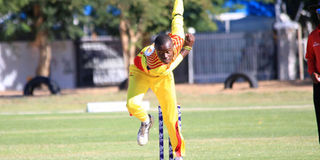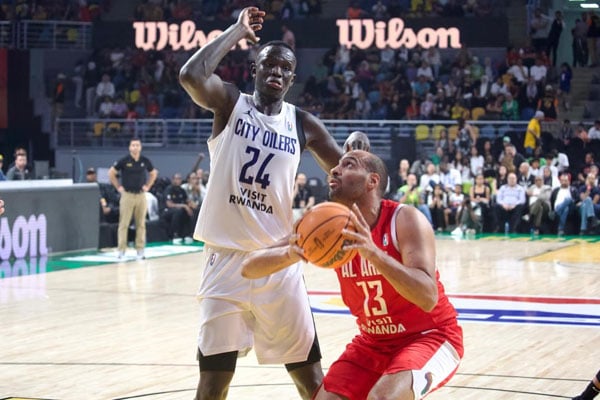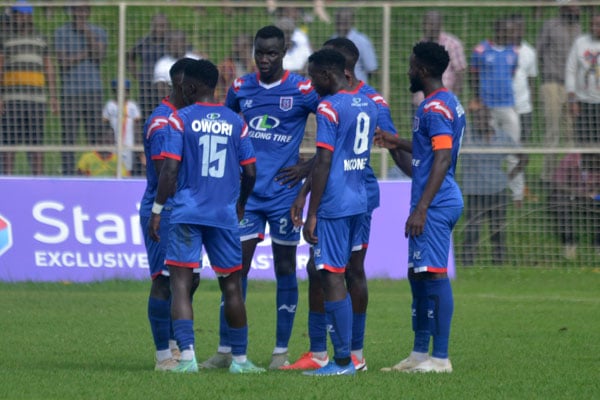Schools must play key role at grassroots level

Beating The Odds. Cosmas Kyewuta recovered from a gun-shot injury in his lower right leg to make the Baby Cricket Cranes side currently in Windhoek, Namibia. PHOTO BY ICC MEDIA.
What you need to know:
- Brains not brawn. One official who was with the under-19s in Windhoek told your columnist in no uncertain terms that “cricket is a brain and not muscles game.
- Comment. Observers have been quick to conclude that such indiscipline, which severally forced Ogwang to react with a hint of impatience (discernible in his post-mortems), reflects the limits to which Ugandan cricket should be prepared to rely on Nago Boys.
In the unforgiving heat of late December, just as many Ugandans were beginning to entertain the thought of taking down their Christmas decorations and begin a customary countdown to 2019, Cosmas Kyewuta felt a deep chill shoot through his foot. The excruciating pain was a notch higher than what he experiences whenever his foot helps him dig out a yorker (which for a tail-ender happens quite often!).
A bullet had just ripped through Kyewuta’s foot, leaving the teenager in such great distress. The shroud of secrecy around what occasioned the youngster’s shooting is yet to be peeled away. Born and bred in the backwater of Naguru where trouble always seems to hang uneasily in the air, Kyewuta cannot be said to have grown up with a silver spoon in the mouth.
His ilk -- known by the nickname Nago Boys -- are lionised for the fight in them. The truth, though, is that many of them survive, barely. Lost to all sense of shame, a disproportionate number of Nago Boys are forced to commit the most indecent things in a bid to survive. They undoubtedly represent a clear and present danger to social order. But in sport they have found something that helps them not risk straying into the crosshairs. They have found a purpose...hope.
It is the aforesaid hope that pushed Kyewuta to work his way back not just to full fitness, but -- crucially -- into the national under-19 team a little over three months after the shooting incident. If the pace of his recovery seems unparalleled (and it was pretty remarkable!), then you clearly did not have your finger on the pulse of the ICC Under-19 World Cup qualifier between Uganda and Nigeria this past week. The fall of Uganda’s wickets from 57-1 to 80 all out as they chased a victory target of 111 was just as mind-boggling. Kyewuta was the penultimate wicket to fall as Uganda shot itself in the foot (pun intended), sowing seeds of doubt that were crystallised with a heavy-duty defeat at the hands of hosts Namibia.
Kyewuta of course cannot singularly be blamed from the ‘shooting incident’ in Affies Park. If anything, he bowled well against Nigeria and even had a batting cameo against Namibia. This column, however, understands that Baby Cricket Cranes players -- Kyewuta inclusive -- handled the idea of listening to coach Jackson Ogwang’s pitch gingerly, if they acknowledged it at all as things unraveled in Namibia. Observers have been quick to conclude that such indiscipline, which severally forced Ogwang to react with a hint of impatience (discernible in his post-mortems), reflects the limits to which Ugandan cricket should be prepared to rely on Nago Boys.
One official who was with the under-19s in Windhoek told your columnist in no uncertain terms that “cricket is a brain and not muscles game. You need some good education to [read situations correctly].” The official stopped short of saying the Nago Boys are not cut out for cricket. His exasperation was palpable regardless. “These kids from broken backgrounds,” he whined, “are a big time headache.”
The comments could well be construed as being patronising, but dismissing them out of hand is downright foolhardy. A gnawing unease about Nago Boys continues to course through the veins of not just cricket, but disciplines like rugby and boxing. Cricket for one burnt its fingers when a substantial number of Nago Boys went AWOL whilst on national duty in Canada. That was back in 2009. Rugby and boxing have recently gone on to suffer similar blemishes.
These were not the kind of headlines the sporting disciplines were accustomed to making when schools used to be a breeding ground for talent. The Schools Development Programme, which captured the imagination of the likes of Busoga College Mwiri, Jinja SSS and Ntare School to mention but three, for instance groomed all but four players that took Uganda to and played at the 2004 and 2006 under-19 cricket World Cup tournaments. This time round only one player from the programme -- Pascal Murungi from Nyakasura -- made the grade.
A return to a time-honoured foundation such as the Schools Development Programme could crack open a new world of possibilities. It could also mean sporting federations trying however they can to ensure that Nago Boys gain access to so form of education. Now that would be the very embodiment of a win-win situation. Episodes of shooting oneself in the foot would be few and far between.




